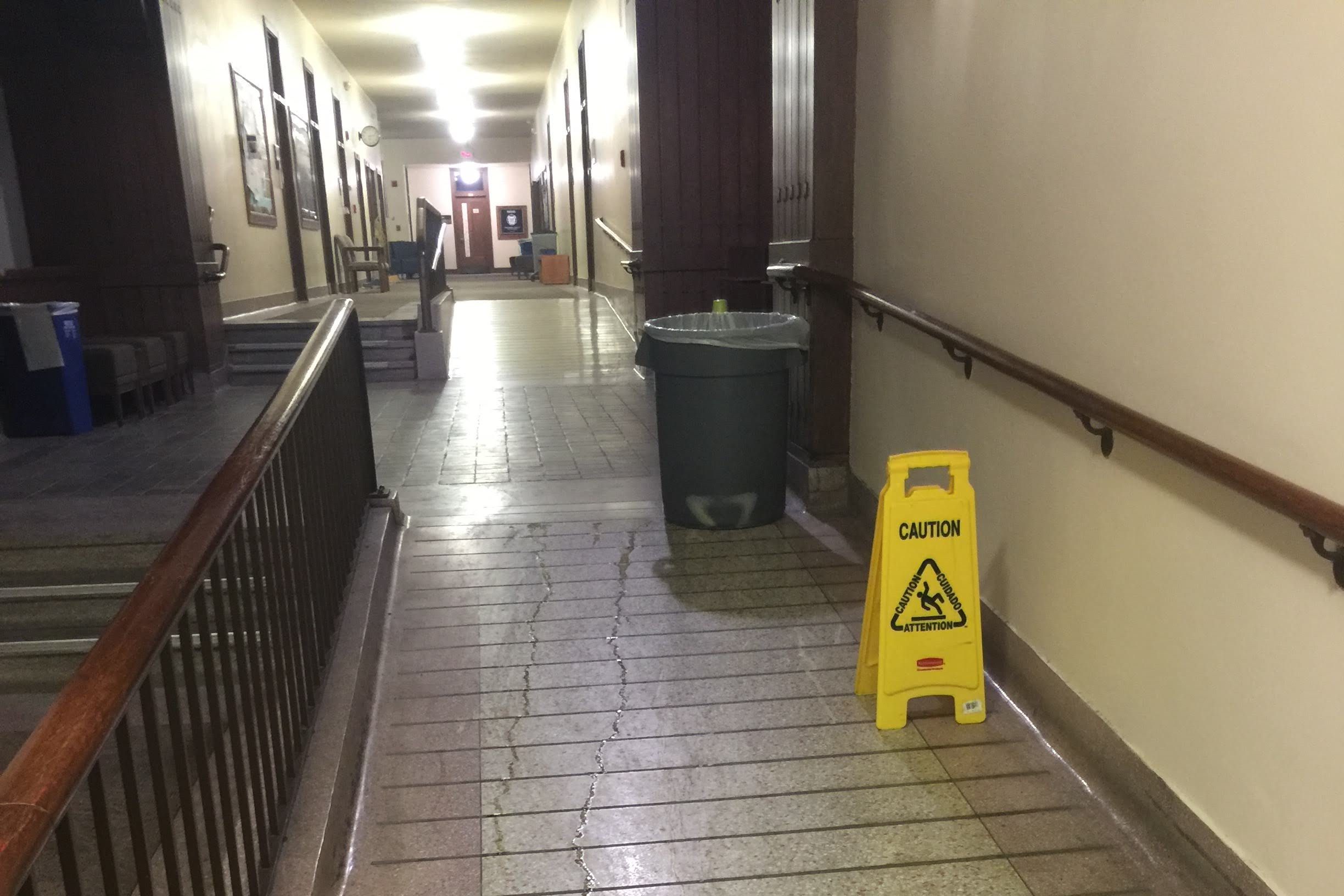Maintenance and housekeeping staff are continuing their work during COVID-19, with some adjustments. Collegian file photo.
STASIA RAEBEL | STAFF REPORTER | smraebel@butler.edu
Butler University operations have not been immune to the many changes on campus during the COVID-19 pandemic. Operations staff, including the grounds crew, building services and housekeeping staff, are following new protocols to ensure safety for students, staff and faculty.
John Lacheta, presidential fellow of university operations, said the university has implemented an enhanced cleaning schedule to disinfect areas of campus more frequently, and operations staff has new requirements to ensure safety while working in the presence of students.
For example, Lacheta said if there is an issue in a classroom, the operations staff will work closely with the faculty members who use that classroom. They will reach out to find a time that works well for the faculty member to leave the space or be socially distanced, and all parties will wear a mask while the technician is in the room.
The grounds crew, on the other hand, is operating almost completely as normal. They try to stay clear of places that are busy, but this is not normally an issue as they work before most students rise for class. The only significant change to their routine is the addition of a mask requirement, and increased caution when working around other people.
One of the operations groups facing the most changes is the housekeeping staff. Normally, housekeeping staff relies on a rotating cleaning schedule, which denotes areas of campus that need cleaning and vacuuming on respective days of the week.
Now, Lacheta said the staff is disinfecting classrooms and hallways every day, and they will use a Clorox Total 360 System, a machine with an electrostatic sprayer that can clean the hard-to-reach surfaces, for enhanced cleaning of each room. The staff will use this machine, in addition to their regular cleaning plan, once a day.
In order to best prepare for working during the pandemic, the housekeeping staff underwent additional training to use the disinfectant machine, and the entire staff continues to stay as informed as possible on the CDC guidelines for facility-related departments.
“Overall, everyone on campus is learning and trying to follow the CDC guidelines by gaining knowledge of the virus…[it] has always been an evolving process,” Lacheta said. “We talk with university health officials to get the most up to date information and relay that to our staff.”
Residential maintenance protocols have also shifted to accommodate health and safety procedures. If a student has an issue in a dorm room, there is a slightly different protocol for getting the problem fixed than in previous years.
“We just ask the student if they want to be there, and that it is totally fine, but they [have to] wear their mask and be socially distant for our technician to come in and do what needs to be done,” Lacheta said.
Junior psychology major Kathryn Aldstadt had a maintenance issue in her room this year and was able to experience this process firsthand.
“We live in AV Building H, and our bathroom ceiling light was slowly filling with water and dripping water onto the floor below,” Aldstadt said in an email to The Butler Collegian. “We filed a maintenance report [and] they came the next day… They said that maybe the bathroom above us was flooded, so they went to check on them, and it stopped.”
Aldstadt said there was not much to it; she and her roommates were able to stay in their room while the worker did their job. She said they were required to wear a mask and so was the worker, and the entire process lasted about 10 minutes.
“Overall, I wasn’t worried,” Aldstadt said. “They got in at a reasonable time, wore a mask and did their job effectively.”
The university always has masks and supplies on hand for the workers, so they can do jobs such as helping students like Aldstadt, but the supply of masks for workers has heavily increased this year due to COVID-19 regulations. This — along with the purchase of the 360 disinfectant machines, hand sanitizer dispensers, numerous wipe buckets for classrooms and plexiglass to protect workers and students from the spread of COVID-19 — has caused some additional costs for the university.
Bruce Arick, the vice president of finance and administration, said he expects the university to pay more for both the increase in supplies and for the products by the suppliers.
“We anticipate spending approximately $500,000 more this year for enhanced cleaning supplies, equipment, masks, etc,” Arick said. “We have seen a general increase in pricing as well as some challenges getting certain supplies.”
The university decides on suppliers based both on the price of products and whether they can supply what they need. Arick said the money for these supplies comes from a reallocation of existing funds.
Lacheta further explained Arick’s spending decisions. He said the operations team had to determine the best ways to manage the budget by implementing only the most crucial projects on campus and cut the things considered unnecessary.
“Our employees are being paid the same,” Lacheta said. “We did reduce our budget from less important expenses… for example, we didn’t plant as many of the flowers that we normally do on campus.”
There are also several vacant staff positions that the university decided to delay filling. Even with fewer staffers available, Lacheta said their current staff are still able to get everything done.
“We’ve learned a lot over the past six or eight months and we’ll continue to learn, which will make us better through the pandemic,” Lacheta said.



